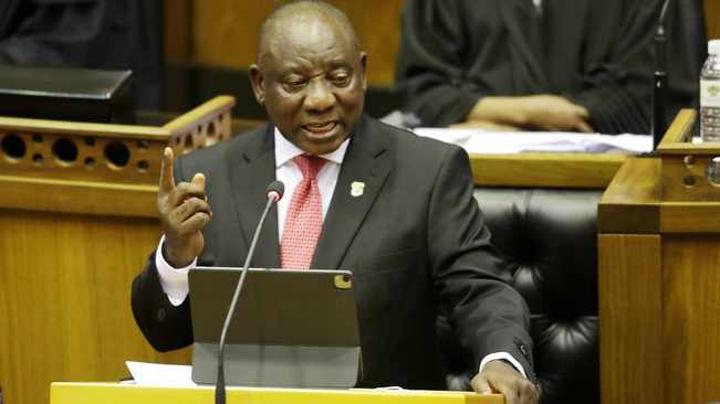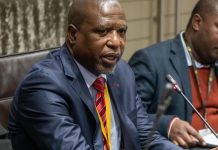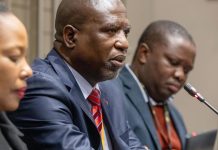Africa-Press – South-Africa. Durban – President Cyril Ramaphosa delivered the State of the Nation Address in Parliament this evening. Ramaphosa, in his opening, remarked on today being the 31st anniversary of former President Nelson Mandela’s release from prison.
“On this day, 31 years ago, President Nelson Mandela walked out of the gates of Victor Verster prison a free person, a living embodiment of the resilience and courage of the South African people. For nearly 40 million years an extraordinary ecosystem has existed here at the southernmost tip of our continent,” Ramaphosa said.
This year’s SONA was devoid of the hype and pomp of the red carpet, fancy outfits and suits and the candle lighting ceremony before Ramaphosa took to the podium set a sombre mood, in keeping with a country fighting a global pandemic.
Here are the key take-aways from Ramaphosa’s speech
:
Covid-19
– SA has secured nine million doses of the Johnson & Johnson vaccine programme, which has shown to be effective against the 501Y.V2 variant. The doses are expected to arrive next week.
Economy
– In the third quarter of 2020, our economy was 6% percent smaller than it was in the last quarter of 2019. As a result of the relief measures that we implemented and the phased reopening of the economy, we expect to see a strong recovery in employment by the end of 2020.
SOEs
– Overarching legislation for state-owned companies will be tabled in Cabinet this financial year and Parliament in the next the financial year. A centralised SOE model is being implemented this financial year, which will ensure a standardised governance, financial management and operational performance framework for all . A centralised SOE model is being implemented this financial year, which will ensure a standardised governance, financial management and operational performance framework for all . The mandates of all are being re-evaluated to ensure that they are responsive to the country’s needs and the implementation of the National Development Plan.
Unemployment
– Over the past year, South Africa has experienced a sharp decline in growth and a significant increase in unemployment. In the third quarter of 2020, our economy was 6% percent smaller than it was in the last quarter of 2019. There were 1.7 million fewer people employed in the third quarter of 2020 than there were in the first quarter, before the pandemic struck.
Infrastructure and Housing
– Progress is being made on several major water infrastructure projects. These include Phase 2A of the Mokolo and Crocodile River project, and the uMkhomazi Water Project. The Infrastructure Investment Plan identifies roads projects worth R19 billion covering the spine of the South African road network. Work is underway to finalise project finance structuring for these projects. Resources have been committed from the fiscus to support the construction and rehabilitation of the major N1, N2, and N3 highways. These infrastructure projects will lead to the revival of the construction industry and the creation of much-needed jobs.
Education
– Ramaphosa said a priority for this year to regain lost time and improve educational outcomes, from the early years through to high school and post-school education and training.
GBV
– Ending gender-based violence is imperative if we lay claim to being a society rooted in equality and non-sexism. Ramaphosa said three key pieces of legislation were introduced in Parliament last year to make the criminal justice system more effective in combating gender-based violence.
“To ensure that perpetrators are brought to book, we are making progress in reducing the backlog of gender-based violence cases. We continue to provide care and support to survivors of gender-based violence,” Ramaphosa said.
Health
– The President said more effort will be made to intensify prevention efforts and strengthening SA’s health system
Welfare
– Special Covid-19 Grant of R350 has been extended by a further three months. Ramaphosa said this has proven to be an effective and efficient short-term measure to reduce the immediate impact on the livelihoods of poor South Africans. “We have also decided to extend the Covid-19 TERS benefit until 15 March 2021 only for those sectors that have not been able to operate,” Ramaphosa said.
IOL






